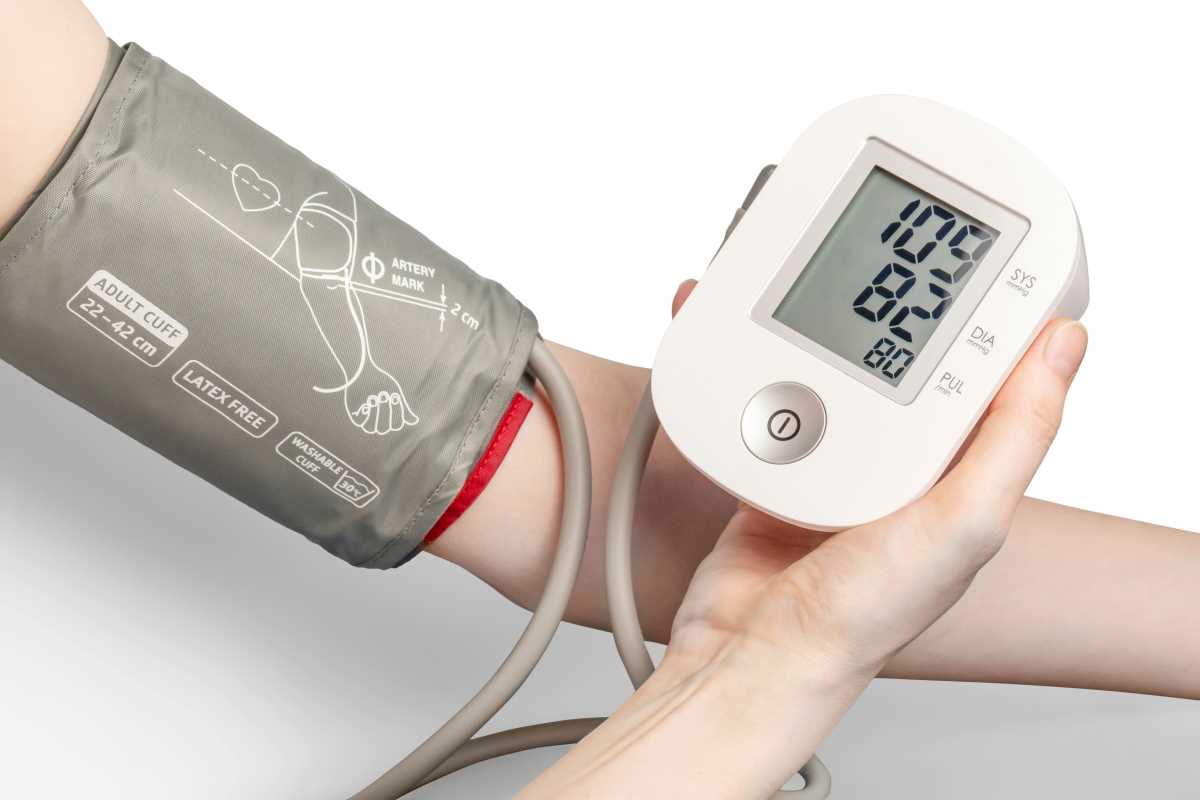If you're managing asthma in your 40s or 50s, you might be surprised to learn that your breathing condition affects more than just your lungs. Recent research reveals a significant connection between asthma and heart health that deserves your attention. Understanding this relationship empowers you to take proactive steps that protect both your respiratory and cardiovascular systems as you navigate this important stage of life.
The link between asthma and heart disease isn't immediately obvious, but it's both real and substantial. Adults with asthma face a 40-70% higher risk of developing cardiovascular conditions compared to those without the breathing disorder. This increased risk becomes particularly important to understand and address during middle age, when both asthma symptoms may change and heart disease risks naturally increase.
Let's explore how these two seemingly separate health concerns interact and what you can do to protect your overall well-being.
Understanding the Asthma-Heart Connection
The relationship between asthma and cardiovascular health centers on several interconnected factors that affect your body's overall functioning. At its core, asthma creates conditions that can stress your cardiovascular system over time.
Chronic Inflammation: The Hidden Link
Asthma involves persistent inflammation in your airways, but this inflammatory process doesn't stay confined to your lungs. The inflammatory compounds circulating through your bloodstream can affect your entire cardiovascular system, including your heart and blood vessels.
This systemic inflammation contributes to atherosclerosis—the buildup of plaque in your arteries. When inflammatory substances interact with cholesterol and other particles in your bloodstream, they accelerate the formation of arterial plaques that can lead to heart attacks and strokes.
Research shows that adults with asthma have elevated levels of C-reactive protein (CRP), a key marker of inflammation that's also associated with increased heart disease risk. This shared inflammatory pathway helps explain why asthma and cardiovascular conditions often occur together.
Oxygen Demand and Heart Stress
During asthma episodes, your heart must work harder to pump blood through your body while your lungs struggle to provide adequate oxygen. This increased workload can strain your cardiovascular system, particularly if you experience frequent or severe asthma attacks.
Over time, this repeated stress can contribute to structural changes in your heart, including thickening of the heart muscle and increased blood pressure. These changes create a foundation for future cardiovascular problems.
Specific Cardiovascular Risks for People with Asthma
Adults with asthma face increased risks for several specific heart-related conditions. Understanding these risks helps you work with your healthcare team to monitor and protect your cardiovascular health.
Hypertension and Blood Pressure Concerns
High blood pressure affects nearly 60% of adults with asthma, compared to about 45% of those without the condition. Several factors contribute to this increased risk:
Medication Effects: Some asthma medications, particularly oral corticosteroids and certain bronchodilators, can raise blood pressure. While these medications are essential for managing your asthma, they require careful monitoring to minimize cardiovascular side effects.
Inflammatory Impact: The chronic inflammation associated with asthma affects blood vessel function, making them less flexible and contributing to higher blood pressure readings.
Sleep Disruption: Poor asthma control often leads to disrupted sleep, which is strongly linked to hypertension development. When your asthma interferes with restful sleep, it creates a cascade of effects that can elevate your blood pressure.
Heart Rhythm Abnormalities
People with asthma experience heart rhythm irregularities more frequently than the general population. These arrhythmias can range from harmless extra heartbeats to more serious conditions requiring medical intervention.
Beta-Agonist Effects: Quick-relief inhalers containing beta-agonists can temporarily affect heart rhythm, particularly when used frequently during poorly controlled asthma periods. While these medications are generally safe, overuse can contribute to palpitations and rapid heart rate.
Hypoxia Impact: When asthma restricts oxygen flow to your body, your heart may develop irregular rhythms as it attempts to compensate for reduced oxygen levels.
Coronary Artery Disease Risk
Adults with asthma face a significantly higher risk of developing coronary artery disease—the most common form of heart disease. This increased risk stems from multiple factors:
The inflammatory processes involved in asthma accelerate atherosclerosis development. Additionally, some asthma medications may affect cholesterol levels and blood clotting factors, potentially contributing to arterial plaque formation.
Studies indicate that women with asthma face particularly elevated risks for heart disease, especially after menopause when hormonal changes compound cardiovascular risk factors.
How Asthma Medications Affect Heart Health
The medications you use to manage your asthma can have both positive and negative effects on your cardiovascular system. Understanding these effects helps you work with your healthcare provider to optimize your treatment plan.
Corticosteroids and Cardiovascular Impact
Inhaled corticosteroids, the foundation of asthma treatment, generally have minimal cardiovascular effects when used as prescribed. However, oral corticosteroids—sometimes necessary during severe asthma flares—can significantly impact your heart health.
Long-term oral corticosteroid use can lead to:
- Increased blood pressure
- Elevated blood sugar levels
- Changes in cholesterol levels
- Increased risk of blood clots
- Weight gain that strains the cardiovascular system
If you require frequent oral corticosteroid courses, discuss alternative treatment strategies with your healthcare provider to minimize cardiovascular risks while maintaining asthma control.
Bronchodilators and Heart Rhythm
Both short-acting and long-acting bronchodilators can affect heart function, particularly in people with underlying cardiovascular conditions.
Beta-Agonists: These medications can increase heart rate and potentially trigger palpitations. While generally safe for most people, those with heart conditions may need careful monitoring when starting or adjusting doses.
Anticholinergics: These newer bronchodilators typically have fewer cardiovascular effects but may still require caution in people with certain heart rhythm disorders.
The Role of Asthma Control in Heart Health
Well-controlled asthma significantly reduces your cardiovascular risks, while poorly managed asthma compounds them. This makes effective asthma management crucial not just for your breathing, but for your overall heart health.
Benefits of Optimal Asthma Control
When your asthma is well-managed, you experience:
- Reduced systemic inflammation
- Better sleep quality
- Less frequent need for oral corticosteroids
- Improved exercise tolerance
- Lower stress on your cardiovascular system
These benefits create a positive cycle where better asthma control leads to improved heart health, which in turn supports better overall wellness and asthma management.
Warning Signs to Monitor
Pay attention to symptoms that might indicate your asthma is affecting your cardiovascular health:
- Chest tightness that feels different from typical asthma symptoms
- Rapid or irregular heartbeat
- Swelling in your legs or ankles
- Excessive fatigue during normal activities
- Dizziness or lightheadedness
Report these symptoms to your healthcare provider promptly, as they may indicate cardiovascular complications requiring evaluation.
Lifestyle Strategies for Dual Protection
Protecting both your respiratory and cardiovascular health requires a comprehensive approach that addresses shared risk factors and promotes overall wellness.
Exercise and Physical Activity
Regular physical activity benefits both asthma and heart health, though it requires careful planning and management. Exercise strengthens your heart, improves lung function, and reduces systemic inflammation.
Safe Exercise Strategies:
- Warm up gradually and cool down slowly
- Use your rescue inhaler before exercise if recommended
- Choose activities appropriate for your fitness level
- Monitor weather conditions and air quality
- Stay hydrated and avoid exercising during high pollen counts
Start with low-intensity activities like walking or swimming, gradually increasing duration and intensity as your fitness improves. Many people with asthma find that regular exercise actually reduces their symptoms over time.
Stress Management
Chronic stress worsens both asthma and heart disease. Developing effective stress management techniques provides dual benefits for your health.
Effective Stress Reduction Methods:
- Deep breathing exercises and meditation
- Regular sleep schedule with adequate rest
- Social connections and support systems
- Hobbies and activities you enjoy
- Professional counseling when needed
Stress can trigger asthma attacks and contribute to high blood pressure, making stress management a crucial component of your overall health strategy.
Diet and Nutrition
A heart-healthy diet also supports good asthma management. Focus on foods that reduce inflammation while supporting cardiovascular health.
Beneficial Dietary Choices:
- Omega-3 rich fish like salmon and mackerel
- Colorful fruits and vegetables high in antioxidants
- Whole grains and lean proteins
- Limited processed foods and excess sodium
- Adequate hydration with water
Some people with asthma find that certain foods trigger their symptoms. Work with a nutritionist familiar with both asthma and heart health to develop a personalized eating plan.
Working with Your Healthcare Team
Managing both asthma and cardiovascular health requires coordination among different healthcare providers. Building strong relationships with your medical team ensures comprehensive care that addresses both conditions.
Regular Monitoring and Check-ups
Schedule regular appointments with both your primary care provider and any specialists involved in your care. These visits should include:
Cardiovascular Assessments:
- Blood pressure monitoring
- Heart rate and rhythm evaluation
- Cholesterol level testing
- Blood sugar screening
- Discussion of any new cardiac symptoms
Asthma Evaluations:
- Lung function testing
- Medication effectiveness review
- Trigger identification and avoidance strategies
- Inhaler technique assessment
- Action plan updates
Medication Coordination
Ensure all your healthcare providers know about every medication you take, including over-the-counter drugs and supplements. Some medications used for heart conditions can worsen asthma, while certain asthma treatments may affect heart function.
Your providers can work together to select treatments that effectively manage both conditions while minimizing adverse interactions or side effects.
Disclaimer: The content provided on SuperHealthyTips is for informational and educational purposes only. This information is not intended to be a substitute for professional medical advice, diagnosis, or treatment.
 (Image via
(Image via





